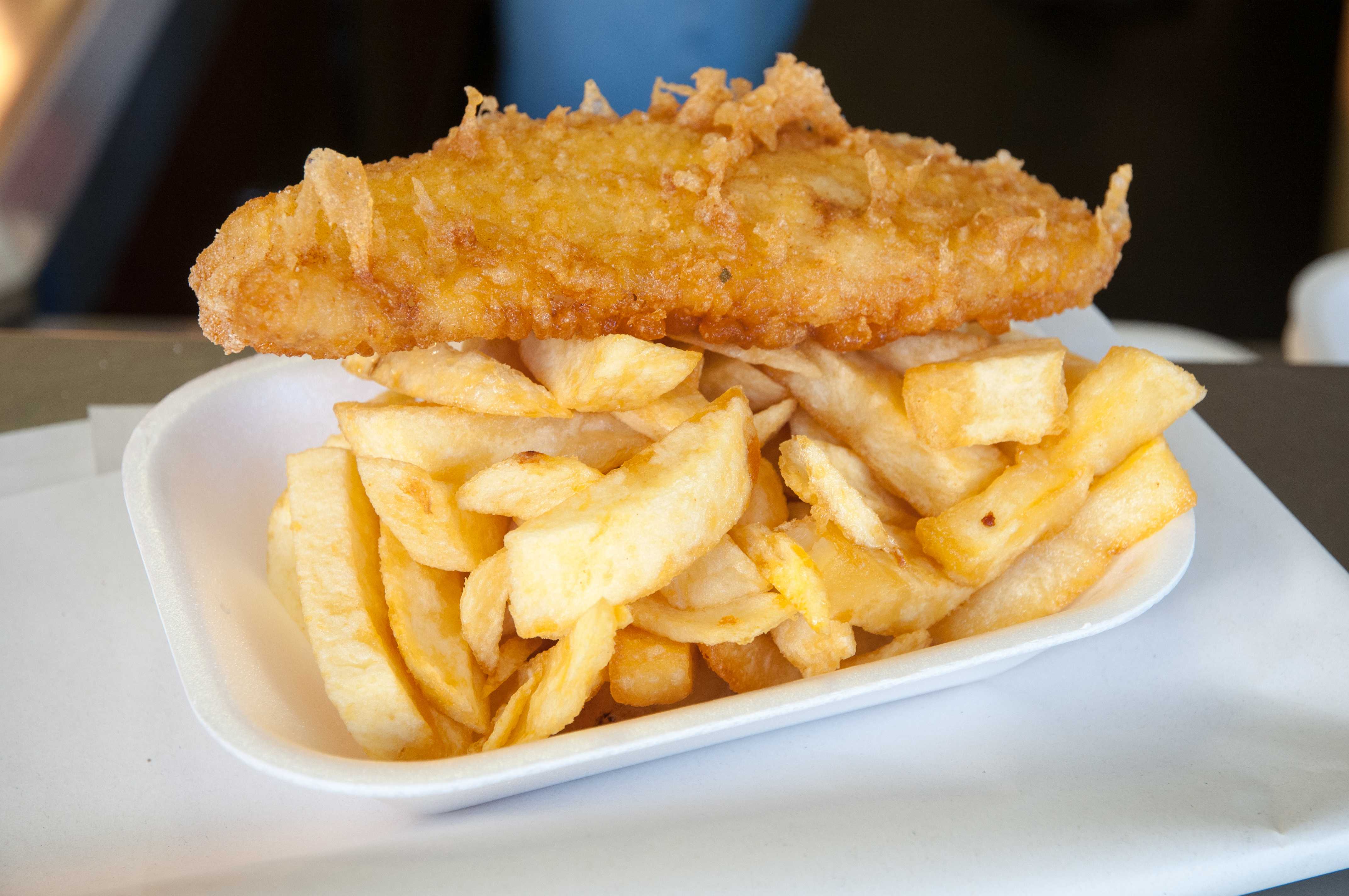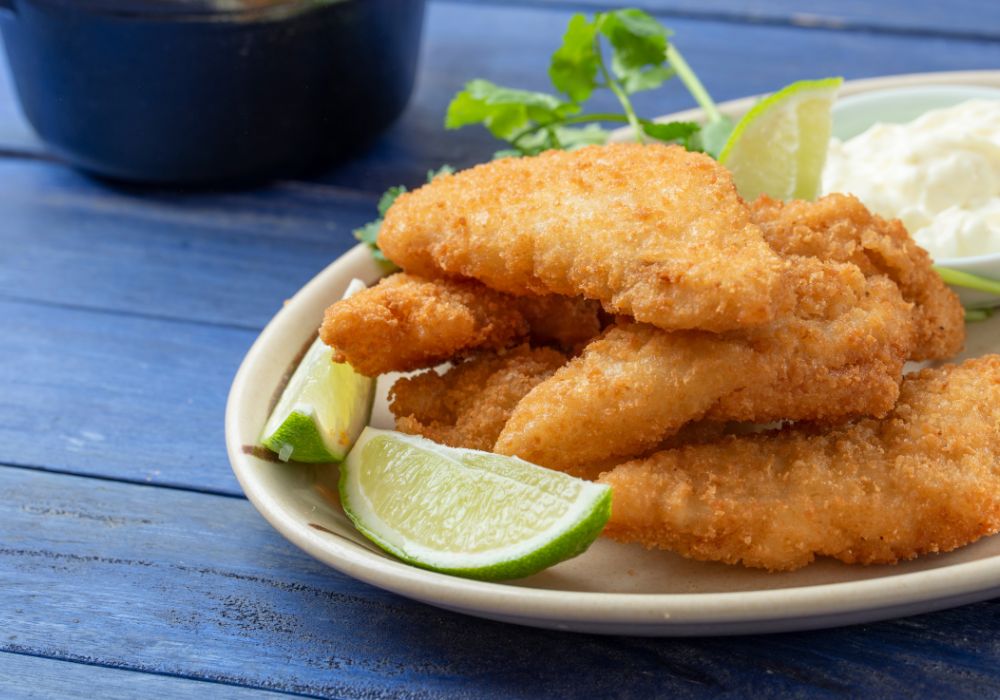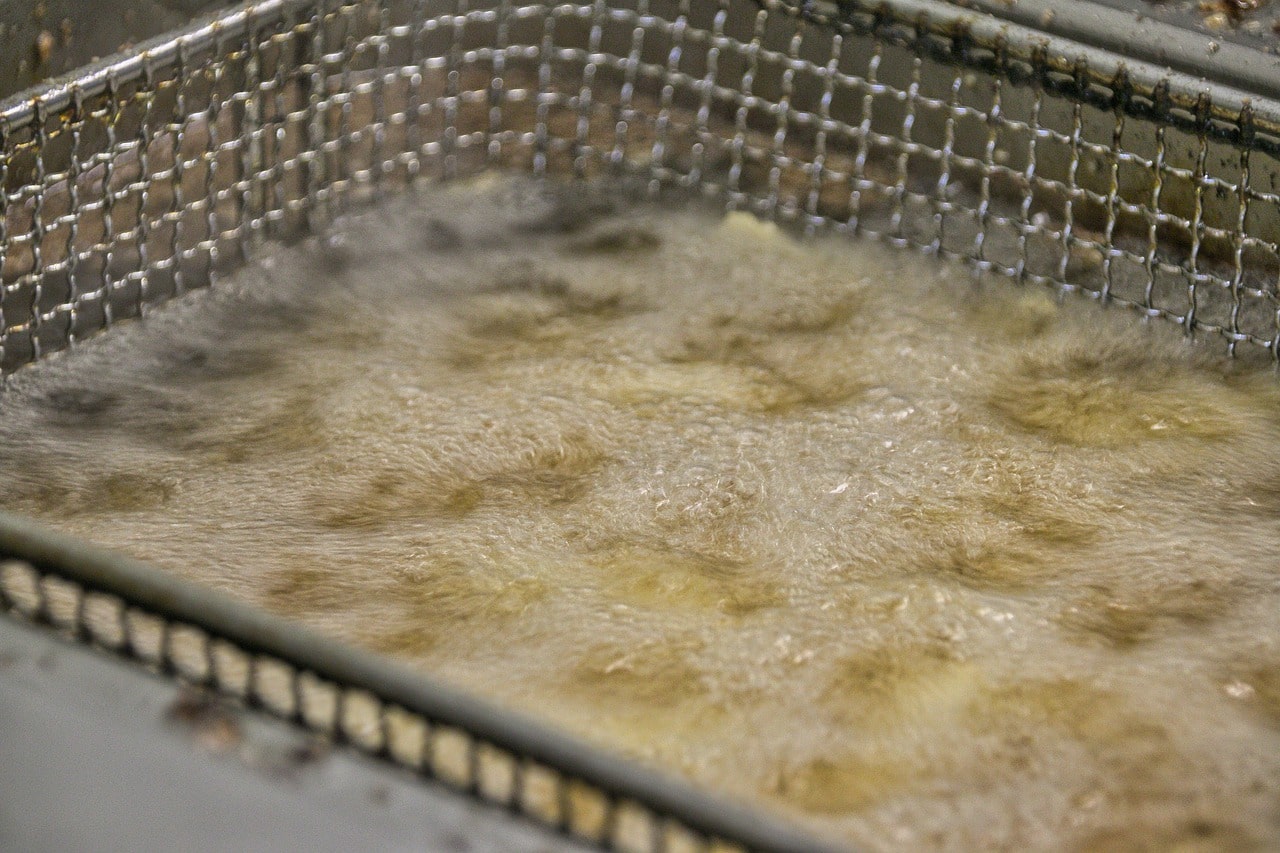Cooking oils are a crucial part of our every day diets because they give our food taste, texture, and nutritious value. It can be difficult to choose the right oil though because there are so many different kinds on the market! Here, we look at the choice between sunflower oil vs. vegetable oil. Taste, viscosity, smoke point, and nutrient value are the key points of comparison here. That’s because deep frying has unique challenges from hitting the right temperature without burning, making food crisp rather than soggy, how much oil you need to use, and the need to do multiple small batches.
In this piece, we’ll examine these different cooking oils in more detail and look at their unique qualities, recommended applications, and health advantages. This advice will assist you in selecting whether to choose sunflower or vegetable oil for deep frying, whether you’re a seasoned chef or a novice in the kitchen.
How Are They Made?
Vegetable Oil
Oils from plant components are extracted to produce vegetable oils. The unwanted components must be crushed and removed during this process, which is typically accomplished through mechanical pressing and solvent extraction. Vegetable oil is typically made from a blend of oils from different seeds and plant pulp.
Sunflower Oil
This is a type of pure vegetable oil which is made from the pressed seeds of the sunflower. It is comparable to corn, and rapeseed oils in terms of smoke point, taste, and viscosity. Sunflower oil should be avoided for deep frying, the best oil for deep frying is palm oil – but more about that later!
Is Sunflower Oil the Same as Vegetable Oil?
When it comes to vegetable vs. sunflower oil, both are varieties of plant-based oils. Sunflower oil is made from the seeds of the plant and is usually light gold in colour. It is a common option for baking and cooking because it has a neutral flavour and is rich in polyunsaturated fats.
On the other hand, vegetable oil can be a mixture of various oils obtained from various sources, such as soybeans, rapeseed, maize, and sunflowers. It is frequently used for cooking and baking and is usually a clear, light golden liquid with a bland taste. Despite being a form of vegetable oil, sunflower oil is not present in all vegetable oils. Vegetable oil’s precise oil composition can change based on the producer and the intended use.
So, while sunflower oil is a vegetable oil, not all vegetable oils have sunflower oil. It’s like saying that all BMWs are cars, but not all cars are BMWs!
What is the Difference Between Sunflower Oil and Vegetable Oil?
Vegetable oils can be categorised in a number of ways, including:
By their source
Since not all vegetable oils are derived from plant crops or seeds, as well as by blending oils from related plant derivatives including nuts.
By their use
Both vegetable and sunflower oils have a wide range of uses and are popular options for home cooks. They are used for cooking, baking, and frying. The professionals, however, including chefs, food trucks, and chippies, use palm oil for deep frying because it performs better, gives the best result, and is sustainable too if you use an RSPO certified supplier like Frymax
By their deep frying performance
The main challenge is choosing oil with good deep frying life. Cooking oils and fats have different reactions to heat, and some deep-frying oils are more stable in use than others. When it comes to deep frying, sustainable palm oil is more stable and provides significantly longer deep frying life than sunflower oil.
How Do the Two Oils Compare When Heated?
Due to their high smoke points and low level of flavour, both are frequently used for baking and cooking. They both have comparatively high smoke points, which means they can be cooked to high temperatures before smoking and degrading. However, sunflower oil is comparatively unstable when heated and only really suitable for pan frying (where oil is used only once) and not for deep frying where oil is used repeatedly.
Vegetable oil can have a variety of smoke points based on the particular oil blend used, while sunflower oil usually has a smoke point of around 230°C. Other vegetable oils might have lesser smoke points of around 210°C, some, like soybean oil, have smoke points that are comparable to those of sunflower oil. Palm oil in comparison has a smoke point of 235°C.
Which Oil is Best for Deep Frying?
The best oil for deep frying – and the one that professional cooks and chefs all over the UK prefer – is palm oil!
Are you looking for sustainable, premium grade frying oil? Choose Frymax! Our sustainably sourced palm oil is relied on by chippies and restaurants across the country to serve up high-quality fried foods. If you’d like to learn more, get in contact with Frymax.
Become a Frymax member today to gain access to exclusive content, expert frying advice and the chance to enter our fantastic competitions.






